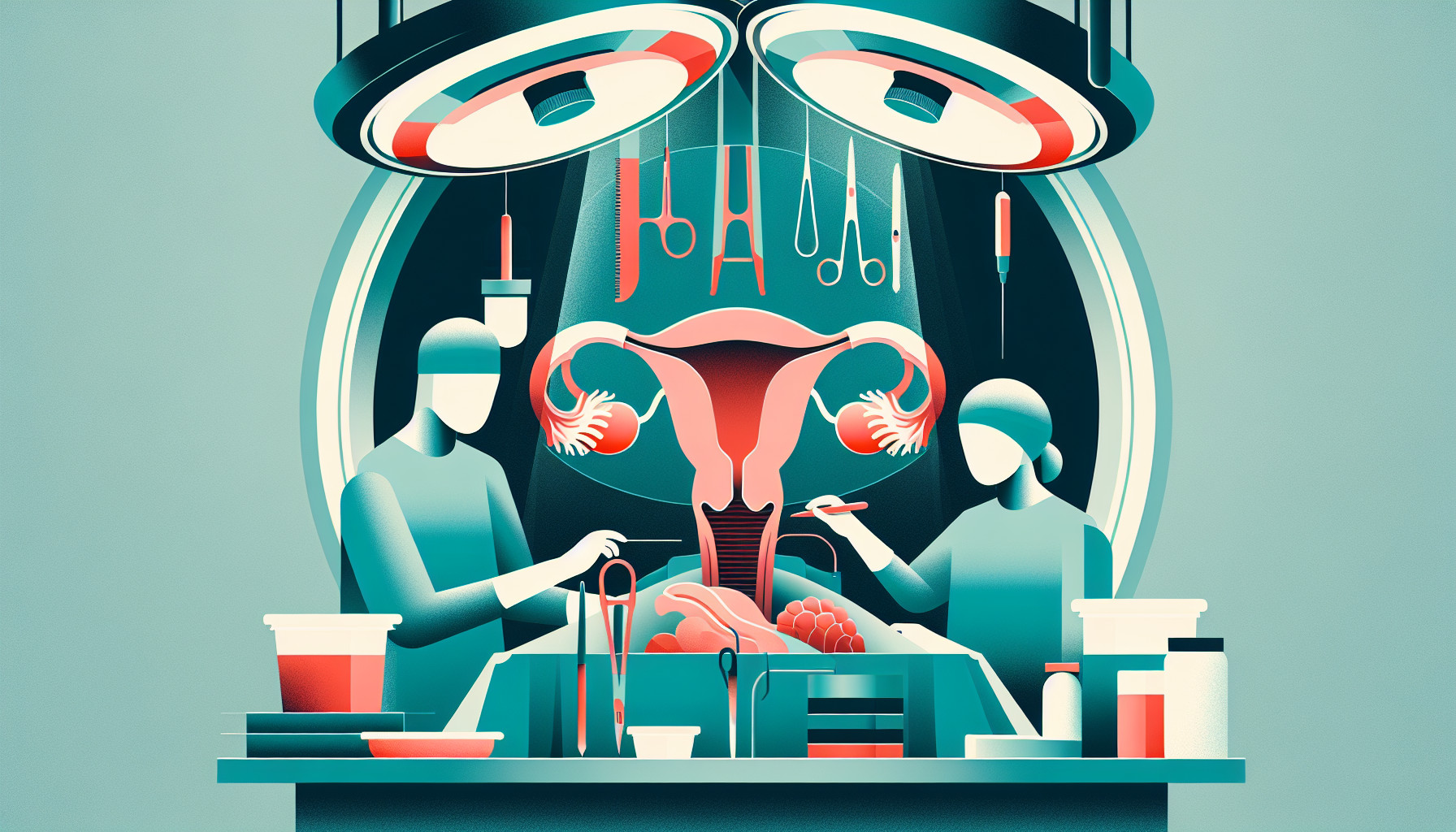Our Summary
This research explored the long-term effects on sexual pleasure for women at high risk of ovarian or breast cancer who underwent a preventative surgery to remove their ovaries and fallopian tubes. The study focused on women who had this surgery either before menopause (age 46 or younger) or after menopause (age 54 or older).
The study showed that women who had the surgery before menopause were just as likely to be sexually active later in life as those who had the surgery after menopause. However, the women who had the procedure before menopause were more likely to experience discomfort during sex and vaginal dryness. Despite this discomfort, it didn’t lead to less sexual pleasure for these women.
Interestingly, the age at which the women had the surgery before menopause (either before age 41 or between ages 41 and 45) didn’t make a difference to the level of pleasure or discomfort reported.
The research suggests that while premenopausal surgery may lead to more physical discomfort during sex, it doesn’t affect the overall sexual activity or pleasure of these women in the long-term.
FAQs
- Does having a preventative surgery to remove ovaries and fallopian tubes affect sexual activity in women later in life?
- Does the age at which the surgery is performed before menopause impact the level of sexual pleasure or discomfort?
- Does a salpingo-oophorectomy performed before menopause cause more physical discomfort during sex compared to the surgery performed after menopause?
Doctor’s Tip
One helpful tip a doctor might give to a patient undergoing a salpingo-oophorectomy is to communicate openly with their healthcare provider about any concerns or changes in sexual function they may experience after the surgery. This can help the doctor provide appropriate support and recommendations for managing any discomfort or issues that may arise. Additionally, exploring different options for lubrication or other treatments for vaginal dryness can also help improve sexual comfort and pleasure for women post-surgery.
Suitable For
Salpingo-oophorectomy is typically recommended for patients who are at high risk of developing ovarian or breast cancer. This includes individuals with a family history of these cancers, certain genetic mutations such as BRCA1 or BRCA2, or a personal history of breast cancer. Women who have a strong family history of ovarian or breast cancer and have completed childbearing may also be recommended this surgery as a preventative measure. Additionally, women with certain benign ovarian conditions or pelvic inflammatory disease may also be candidates for salpingo-oophorectomy.
Timeline
Before salpingo-oophorectomy:
- Women at high risk of ovarian or breast cancer undergo genetic testing to determine their risk level
- Consultation with healthcare providers to discuss the benefits and risks of salpingo-oophorectomy
- Decision-making process regarding the timing of the surgery (before or after menopause)
- Pre-surgical preparations, including medical evaluations and counseling
- Surgical procedure to remove the ovaries and fallopian tubes
After salpingo-oophorectomy:
- Recovery period following surgery, including pain management and physical rest
- Adjustment to hormonal changes and potential menopausal symptoms
- Follow-up appointments with healthcare providers for monitoring and ongoing care
- Potential changes in sexual function and pleasure, such as discomfort during sex and vaginal dryness
- Long-term implications on sexual activity and pleasure, with findings suggesting that premenopausal surgery may lead to more physical discomfort but doesn’t affect overall sexual pleasure in the long-term.
What to Ask Your Doctor
Some questions a patient should ask their doctor about salpingo-oophorectomy include:
- What are the potential long-term effects on sexual pleasure following a salpingo-oophorectomy?
- Will having the surgery before menopause versus after menopause impact my sexual activity or pleasure?
- What can I expect in terms of discomfort during sex and vaginal dryness after the surgery?
- Are there any specific factors, such as age at the time of surgery, that may influence sexual pleasure post-surgery?
- Are there any treatments or strategies available to manage any discomfort or changes in sexual function that may occur after the surgery?
- How can I maintain a healthy and fulfilling sexual relationship following a salpingo-oophorectomy?
- Are there any potential psychological impacts or concerns related to sexual health that I should be aware of after the surgery?
- Are there any resources or support groups available for women who have undergone a salpingo-oophorectomy and have concerns about their sexual health?
- How often should I follow up with my doctor to discuss any changes or concerns related to sexual pleasure or function after the surgery?
- Are there any lifestyle changes or recommendations that may help improve sexual well-being after a salpingo-oophorectomy?
Reference
Authors: Terra L, Beekman MJ, Engelhardt EG, Heemskerk-Gerritsen BAM, van Beurden M, Roeters van Lennep JE, van Doorn HC, de Hullu JA, Van Dorst EBL, Mom CH, Slangen BFM, Gaarenstroom KN, van der Kolk LE, Collée JM, Wevers MR, Ausems MGEM, Van Engelen K, van de Beek I, Berger LPV, van Asperen CJ, Gomez Garcia EB, Maas AHEM, Hooning MJ, Aaronson NK, Mourits MJE, van Leeuwen FE. Journal: Am J Obstet Gynecol. 2023 Apr;228(4):440.e1-440.e20. doi: 10.1016/j.ajog.2022.11.1289. Epub 2022 Nov 17. PMID: 36403862
